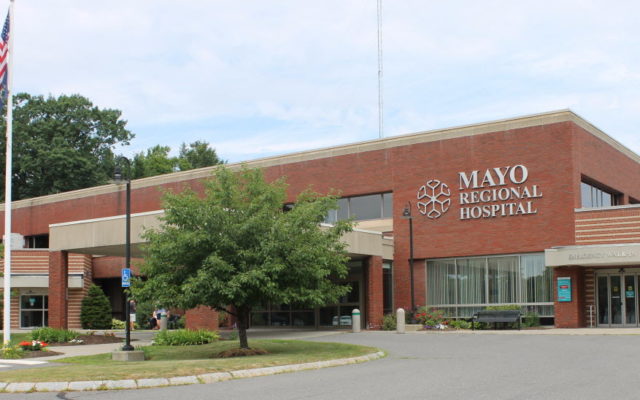
More people without symptoms are getting COVID-19 tests, but the testing is still limited
More people who want to know if they have the coronavirus even if they don’t have symptoms will now be able to get tested at 10 sites across Maine run by Northern Light Health, the state’s second-largest hospital system, as a result of a state effort to provide medical providers with more resources to surveil for the virus.
That means a few different broad categories of asymptomatic people — including those who have come from states with a greater prevalence of the virus — may now be able to get a test at one of the 10 “swab and send” sites in the communities where Northern Light operates hospitals. Those communities include Bangor, Portland, Waterville, Blue Hill, Dover-Foxcroft and Presque Isle.
In early June, the state issued a standing order that allowed asymptomatic people to be tested for COVID-19 without a doctor’s orders if they met a number of criteria for being at higher risk of catching or transmitting it.
But in practice, many health care providers have had to prioritize which asymptomatic people they can actually test because of national shortages of the swabs to collect samples from people’s noses and the chemical-filled-vials in which to send those samples to a lab, among other equipment.
At Northern Light Health, providers have regularly been testing people with symptoms of COVID-19, but until recently, they were only able to test people without symptoms when they were undergoing certain procedures or when their potential exposure to the virus was significant — such as living in the same home as someone who was infected — said Dr. James Jarvis, the system’s COVID-19 incident commander, in an interview last month.
But since Aug. 3, Northern Light providers have been able to “ramp up” testing of asymptomatic people who qualify under the standing order, according to Jeff Doran, vice president of Northern Light Health Medical Group.
“Our goal is to test as many people as we can as quickly as we can,” he said.
Among the categories that are named in the standing order are migrant agricultural workers, employees of lodging facilities, employees of businesses that directly serve the public, visitors from states with a COVID-19 prevalence higher than in Maine, people participating in large gatherings “or other individuals who may be at increased risk of COVID-19 based on the duration and density of their recent, potential exposures.”
Northern Light now has more capacity to offer COVID-19 tests as a result of a state effort to expand processing at the state labs in Augusta and to provide health care providers with more supplies to test people for the virus, according to Doran.
Before this month, the group ran most of its tests at a laboratory at Northern Light Eastern Maine Medical Center in Bangor, but it is now sending about 120 samples a day to Augusta in addition to the 460 or so that it processes each day in its own lab. However, Doran noted that the organization still faces constraints in staffing and supplies.
The Northern Light Health website now includes a section where asymptomatic people who qualify under Maine’s standing order can start the process of trying to schedule a test.
One of the most dangerous aspects of the virus is that infected people can pass it on even if they don’t show symptoms, and quick and widespread testing is seen as critical to recognizing and containing new outbreaks of the virus so that society can safely reopen.
Last month, the state announced the opening of 22 federally funded “swab and send” collection sites that are run by independent groups such as Northern Light and where asymptomatic people can receive free COVID-19 testing for a limited time under the standing order.
A comprehensive list of testing sites around the state is available on the website of the Maine Center for Disease Control and Prevention.
This week, Maine CDC Director Nirav Shah said the state is close to opening the new mobile laboratory in Augusta that was first announced in June and that will help the state keep expanding testing for COVID-19 and other respiratory illnesses that come in the flu season. He said that the state has acquired equipment and chemical reagents for the lab and is finishing the training of its staff.
“As we go into the next phase of COVID-19 where testing of more individuals becomes more important than ever, we know we’ve got to expand that even further,” Shah said.